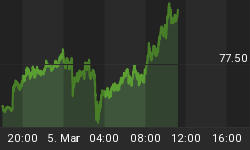For a while there it looked like Japan had the answer. A strong new leader comes in and cuts through all the indecision, orders the central bank to flood the system with cash to depreciate the currency now rather than later - and boom, the stock market soars, exports rise and the economy starts growing again.
The entire left-of-center world eyed this process hungrily, sensing both vindication of their views and the coming economic nirvana when their governments finally accepted the truth about debt (it doesn't matter) and easy money (a free lunch that always creates wealth). If Japan's success proved sustainable, within a matter of months the European Central Bank would have no choice but to join the money creation orgy. And with the euro and yen both falling like rocks, the US Fed would soon have to follow.
But Japan's success, to put it mildly, didn't turn out to be sustainable. Just as Austrian economists and common sense predicted, interest rates on Japanese bonds soared, as the global markets subtracted the 2% target inflation rate from the 1.5% or so yield on long bonds, and decided that a negative real interest rate probably wasn't the best deal. They sold, bond prices plunged, yields rose, and Japan hit the wall that Kyle Bass and others have been predicting it would hit for, it seems, ever. Japan's stock market, now unsure exactly what is going on, has sold off in huge, bloody chunks. (The following chart does not show today's 518 point drop.)

Here in the US something similar is happening. Share prices are at record levels and real estate is booming, which is a recipe for instabily, so the Fed has been making noises about easing back on the asset purchases. And the stock market, no surprise, has started doing what it always does when the Fed tries to siphon off the river of liquidity. It is tanking, down another 200 points on the Dow as this is written on June 5.
What does this mean? Well, the obituary of the supercycle credit bubble that began in the 1940s has been written so many times that it would be crazy to say anything that definite. But it is safe to say that the corner central banks have been painting themselves into has gotten a lot more cramped in the past few weeks. The global economy, led by Europe but with the US close behind, is slowing despite debt monetization that would have been labeled insanely inflationary by pretty much the entire economics profession two decades ago. But shifting the printing press into an even higher gear very risky, based on the Japanese experience.
So our options appear to have narrowed to just two: Roll the dice on complete monetization in which the central bank buys up all the debt being issued -- government, corporate, asset backed - and accept that an asset inflation might ensue (a global debt-for-equity swap, in other words). Or retrench, let interest rates rise to normal levels, and hope that that doesn't send the leveraged speculating community (which includes the governments issuing and rolling over trillions of dollars of short term debt) into cardiac arrest.
















